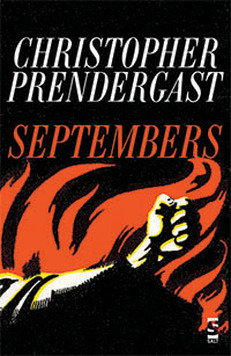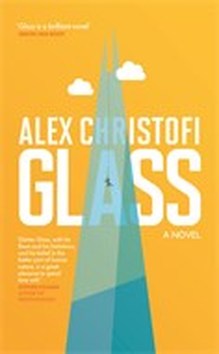
Matt is a young schoolteacher from Birmingham (UK), sometime boyfriend of Annabel and Franz von Papen (the German chancellor who survived the Night of the Long Knives) obsessive. Although his subject is history, he seems detached from his own background, seemingly having no significant relationships other than those forged within the novel or immediately prior to its opening. Enthusiastic about his topic, there is nevertheless a wide gap between his own concept of his merits as a teacher and that of his employers; some dubious professional choices lead to him eventually being grateful to procure a job defumigating shoes in a bowling alley.
He had written it down all wrong. He was trying to look for causality that wasn’t there. We kept going until he had all but blacked out the bigger picture.
Yet Matt himself is always searching for the “bigger picture” and failing to find it or, at least, to hang onto the only picture he has. He buys an expensive map of the world and pins it onto his classroom wall, only to have it defaced by his students. Matt’s alienation was, to me, reminiscent of the work of the existentialist authors John Paul Sartre and Albert Camus, although perhaps I ought to have been more mindful of the harsh realities of life for the current generation of young adults who can no longer expect to attain the comforts and security their parents took for granted.
The bleakness is mitigated by some wry touches of humour, such as in this observation of one of his pupils (p22):
She suffered for her conscience. In another time she might have thrown herself under a horse.
and this on being bombarded with balled-up newspaper by students at the back of the bus on his way to work (p44):
Papen didn’t run from that citadel in Mexico because he was a meek soldier frightened by the sound of gunfire. He ran because he had no jurisdiction in the provinces of Mexico. He also, probably, didn’t have a firearm.
Although I didn’t find this a comfortable read, it was refreshing to come across a young writer eschewing the formulaic to depict an antihero battling his way through a numbing contemporary world and am glad to be able to add Matt to my small collection of fictional teachers. Thanks to Salt publishing my review copy and to Alan Prendergast for bringing it to my attention.

Günter is a lovely character, an innocent with nevertheless profound insights into the absurdities of the modern world. For example, after giving up his virginity to supposed psychic, Lieve, he tries to educate himself for their next encounter via internet pornography, eventually concluding (p125):
The problem with crowd-sourcing information was that, once mob rule was established, people were unlikely to speak out against it. I didn’t recognise any of the men’s actions in myself. It seemed to favour violent oral sex. I am too optimistic person to believe that they represented the general approach.
Günter’s world is full of quirky characters like himself and his possible girlfriend, including The Steppenwolf from whom he rents a room, shut away from life in order to write his book, now at the cutting stage (p105):
The book started off very large, about one and a half million words, and for the last fifteen years I have been stripping away the unnecessary. It must be an essential guide to life. Everything necessary, but nothing extraneous.
The gentle comedy of both character and situation reminded me somewhat of the work of Alison Moore, although it did occasionally stray into cartoon territory, such as in the death of his mother apparently from swallowing a fishbone.
Günter’s first-person narrative is bookended by a few paragraphs from Dean Winterbottom. She also passes judgement on Günter’s account via a number of (73) footnotes scattered through the pages. Readers might enjoy these for their witticisms, for example (p115):
On a personal note, I’m not sure how seriously one should take Freud. He was a cocaine addict who wrote papers with titles like ‘Character and Anal Eroticism’ or ‘Dreams and Telepathy’, and only became a doctor so he could get married. He was, however, correct that ‘time spent with cats is never wasted’.
or choose to ignore them completely. Unfortunately, I experienced them – along with her initials waving from words like sanDWich – as a distraction from a story I was otherwise enjoying: if I glossed over them, I worried about what I was missing; if I read them I took a little time to settle back into the main text. But it could be that this is the post-modern touch, and I’m in no position to complain with my link-littered posts perhaps just as distracting to some readers.
Thanks to Serpent’s Tail for my review copy.
What do you think of the plight of young men today? Are you tempted by either of these novels?





















 RSS Feed
RSS Feed





















